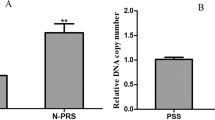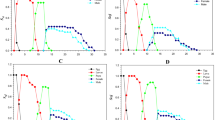Abstract
THE ability of insects to develop a resistance to an insecticide is now widely acknowledged. It has also been shown that, where resistance to a specific insecticide exists, the toxicity of related compounds can be tolerated also, though probably to a lesser extent. This communication reports the occurrence of a high degree of resistance to dieldrin (an insecticidal product containing not less than 85 per cent of 1,2,3,4,10,10-hexachloro-6,7-epoxy-1,4,4a,5,6,7,8a-octahydro-1,4,5,8-dimethanonaphthalene, and not more than 15 per cent of insecticidally active related compounds), in a wild strain of Musca domestica L. which had not been exposed to this insecticide prior to this investigation.
This is a preview of subscription content, access via your institution
Access options
Subscribe to this journal
Receive 51 print issues and online access
$199.00 per year
only $3.90 per issue
Buy this article
- Purchase on Springer Link
- Instant access to full article PDF
Prices may be subject to local taxes which are calculated during checkout
Similar content being viewed by others
References
Bruce, W. N., and Decker, G. C., Soap and San. Chem., 26 (3), 122 (1950).
Kearns, C. W., and March, R. B., Soap and San. Chem., 19 (2), 101 (1943).
Author information
Authors and Affiliations
Rights and permissions
About this article
Cite this article
GOODWIN-BAILEY, K., DAVIES, M. Occurrence of Dieldrin-resistance in Wild Musca domestica L. in England. Nature 173, 216–217 (1954). https://doi.org/10.1038/173216a0
Issue Date:
DOI: https://doi.org/10.1038/173216a0
Comments
By submitting a comment you agree to abide by our Terms and Community Guidelines. If you find something abusive or that does not comply with our terms or guidelines please flag it as inappropriate.



